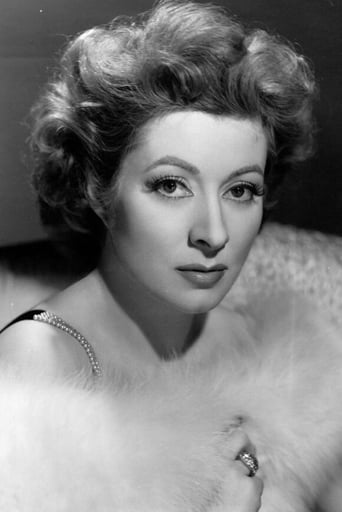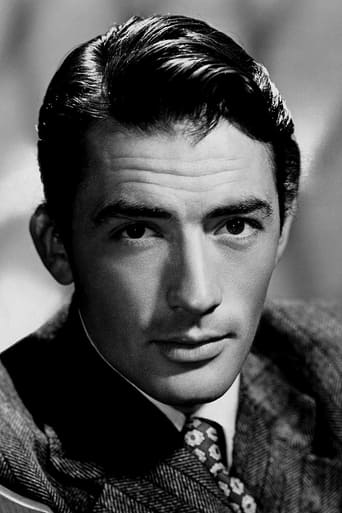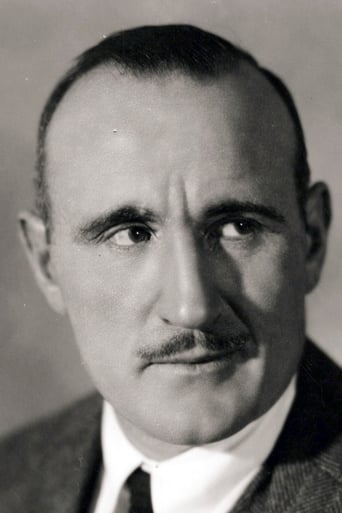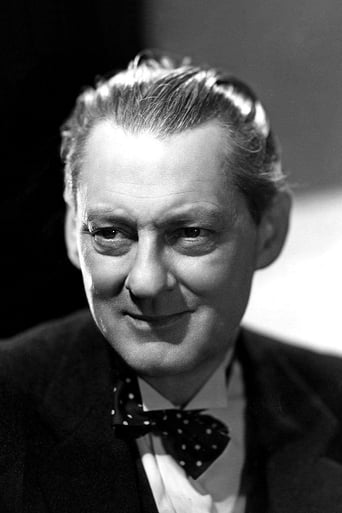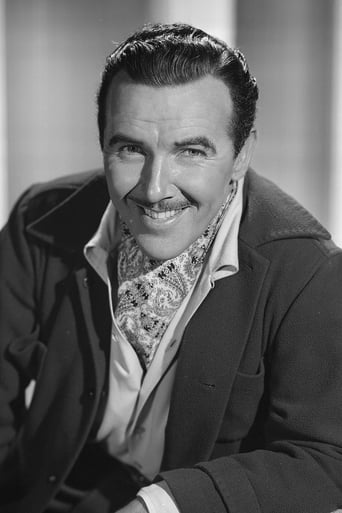Develiker
terrible... so disappointed.
Nessieldwi
Very interesting film. Was caught on the premise when seeing the trailer but unsure as to what the outcome would be for the showing. As it turns out, it was a very good film.
Lachlan Coulson
This is a gorgeous movie made by a gorgeous spirit.
JohnHowardReid
Copyright 13 April 1945 by Loew's Inc. New York opening at the Radio City Music Hall: 3 May 1945. U.S. release: 14 April 1945. U.K. release: 26 November 1945. Australian release: 28 March 1946. 12 reels. 10,787 feet. 120 minutes.SYNOPSIS: In 1880 Pittsburgh, Mary Rafferty becomes a servant in the home of William Scott, despite the opposition of her father, Pat Rafferty, who had been crippled in an accident in Scott's steel mill. Mary endears herself to Clarissa, William Scott's wife, and to the four children: Paul, Constance, William Jr, and Ted. Eventually love comes to Mary and Paul, but she decides not to wed him because of her lowly position.NOTES: Number 7 at the domestic box office for 1945. Initial domestic rental gross: $5,560,000. Photoplay Gold Medal Award: Best Film of 1945.
Photo-play Gold Medal Award: Greer Garson, Best Actress of 1945.
Number 4 on the Film Daily Annual Poll of domestic film critics and commentators.
Film debut of Marshall Thompson, according to many reference books, but in point of fact his initial movie was 1944's Reckless Age.
Greer Garson was nominated for an Academy Award for Best Actress, losing to Joan Crawford's Mildred Pierce. Also nominated: Best Music Scoring in the Drama/Comedy category, but Stothart lost to Miklos Rozsa's Spellbound.COMMENT: Here's another of those stories that appear so often in vintage movies. It's all about the humble servant girl who makes good in the big house on the hill and marries the young master. When our little slavey is played by that wide-eyed mistress of do-goodiness Greer Garson, and the upright chip by the impeccably stolid Gregory Peck, we just know we are in for a studiously well-mounted yet craftily well-wearisome time. But wait! In this movie the unexpected happens. True, we should have remembered that the script is based on a three-decker novel. So just as she is about to marry half-way through the film, there is trouble at the mill. This leads to consequences that add ten years to the happy consummation (which translates into another hour of screen time which the director can put to good use with lots of dewy-eyed close-ups of Miss G. and lots of stolid close-ups of Mr P. putting an eminently respectable brave front on things). When this film was made, a sort of fourth-rate Girls Own Paper Pride & Prejudice like this had a lot of box-office clout. The men were all overseas in the war and the home audience consisted mostly of women seeking this sort of synthetic escapism. And it must be admitted that though there are some glaringly obvious backdrops, the miniatures of the mill are impressively realized and Joseph Ruttenberg's black-and-white photography (which makes the film look like the first pull of a brand-new steel engraving) is always visually stylish to look at. The sets, costumes also help. At times, Garnett's direction is quite deft, though mostly he is content to let his players amble (or fulminate in the case of Lionel Barrymore) through their scenes. This easy-going attitude makes it even more difficult to accept the second half of the film where Duryea and Thompson who seemed so mildly agreeable in the first half, show a mildly disagreeable side to their characters. With Jessica Tandy, oddly enough, the reverse is true. She is always so disagreeable that her big speech loses most of its impact because it's so predictable! So we have here a situation where a director tries two opposite methods to keep our interest in the piece and both of them don't work, leading to the conclusion that the contrived, artificial, unbelievable and completely hackneyed and derivative script itself is the problem.
vincentlynch-moonoi
This was only Gregory Peck's third movie, but it one of my very favorites that he starred in. And, I like it for 2 reasons. First, the star pairing of Peck with Greer Garson, and second, a sort of battle between 2 wonderful character actors -- Lionel Barrymore and Donald Crisp.You do need to understand that this is not only a drama, but also a very serious story. More serious than most dramas. Set in the steel-era of Pittsburgh, Peck's family owns one of the major steel plants, while Garson's family is simply Irish workers in the mills...except that her father (Lionel Barrymore) is an embittered old man who was crippled in a mill accident many years before. Garson goes to work in the mansion of Peck's family, including his father (Donald Crisp) and mother (Gladys Cooper), and 2 brothers and 1 sister (Marsha Hunt, Dan Duryea, and Marshall Thompson). Garson and Peck almost immediately fall in love, but Garson feels the love in inappropriate due to their different stations in life. So, she moves to Europe with Peck's sister. However, when father Crisp learns they were in loves, he calls her back, just in time for the showdown between the union and Crisp...when both patriarchs are killed. Film over. Not! A few years later, after Peck marries another woman, Peck's mother leaves her share of the mill to Garson, then dies, and it is Garson's vote which saves the mill for Peck. Peck leaves his meddlesome wife and Peck and Garson ride off into the sunset...well, at least off in a carriage.Is there romance? Yes, but it is overshadowed by the social issues related to mining and class distinctions between miners and owners. It's all quite interesting...but serious.Garson was nominated for an Academy Award for this picture, and she is superb as the Irish worker bee. Peck is excellent, as well. Donald Crisp turns in a superb performance and outshines Lionel Barrymore, who plays the villain here. The other siblings previously mentioned do their jobs. Jessica Tandy (whom Peck marries here) is also good at being cold. Gladys Cooper is excellent as the mother of Peck, here, but she was always such a fine character actress.It's not easy to fault this film, but...the musical score sometimes sounds more like a Western. And, I felt that Reginald Owens' role as a servant was over the top. But, other than that, the movie is excellent and well worth watching. And, one for the DVD shelf.
bkoganbing
Marcia Davenport's novel The Valley Of Decision got the full MGM star gloss treatment when it came to the big screen. It was bought for the woman who was probably their biggest female star at the time Greer Garson. And Garson was given up and coming new leading man Gregory Peck in only his third film.The Valley Of Decision bears the unmistakable influence of Edna Ferber as well, no doubt this was who Davenport was trying to imitate. It's a story of an Irish working class lass who came to work as a maid for a wealthy steel family and gets quite involved with them and their problems. Quite the family as well with parents Donald Crisp and Gladys Cooper and their offspring Gregory Peck, Dan Duryea, Marshall Thompson, and daughter Marsha Hunt. Look at the cast and the children are pretty much as you classic movie fans can type them. Only Peck seems to have a real love for the business itself that brought them their wealth and of course he's who Crisp has pinned his hopes on to carry on after Crisp leaves this earth.Garson is the Irish lass of course and she does not exactly go with the blessings of the house. Lionel Barrymore is her father with adapted brogue and all and this is one of the few times Barrymore's wheelchair and paralysis is actually given explanation. He had an industrial accident and even though Crisp's family has given a small pension to live on, Barrymore is full of bitterness and hate. It all boils over and leads to a climatic tragedy. The character of the three sons also plays a part in that same tragedy.Other roles of significance are Preston Foster as a union organizer, John Warburton as the English impoverished Earl who courts and weds Marsha Hunt, and Jessica Tandy the society girl who Peck weds. The novel no doubt needed considerable editing to be brought to the screen, but I get the feeling it was done at the expense of Tandy's character. It's strangely underdeveloped for a major role.In Michael Freedland's book about Gregory Peck, Peck was quoted as saying he learned early on that this was a Garson picture because when he saw the shots of them together, she was always radiant and fully lit while he was in the shadows. Seeing the film, damn if Peck wasn't right. Garson knew her business and she got an Oscar nomination for Best Actress, but lost to Joan Crawford for Mildred Pierce. Peck also was in the Oscar running for Best Actor, but for his second film The Keys Of The Kingdom. Herbert Stothart's musical scoring got the only other Academy recognition with a nomination in that category.The Valley Of Decision shows MGM movie-making at its height and at its best. This was one expensive production and the sets show it as well as the impressive cast list. Definitely one for fans of Greer Garson.
alimpaul
Something about old films and the way the predictability does not inhibit viewing enjoyment. I really liked this movie and found it very strait-forward and pure. The acting was superb and the performances by Greer Garson and Gregory Peck were both fantastic as well as nice performances by the supporting actresses Marsha Hunt (Constance Scott) and Gladys Cooper (Clarissa Scott).A tale of and Irish-poor girl, Mary Rafferty (Garson), who finds love outside of her social status with Paul Scott (Peck), and heir to the families Steel fortune/mill...nothing real or avant-Gard happening but the truth of how love has no boundaries. I truly feel that this movie should be used as a blue-print to how Hollywood can portray a true love-without-boundaries type melodrama in the most exquisite and pure way.

